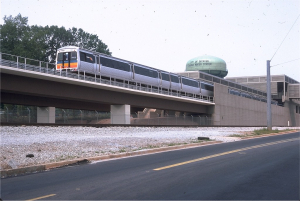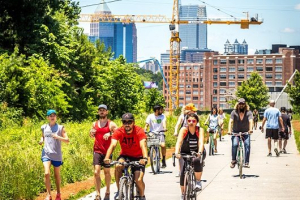
Today MARTA and the urban design it was meant to serve are obsolete.
Electric motors can be made in any size. Batteries are more efficient and cheaper. The cloud means warehouses can break bulk for less than physical stores. The pandemic let my wife recapture 3 hours each day, for chores and for living. She’s not giving that time back.
Work can happen anywhere. The world I wrote about 30 years ago in my book A Guide to Field Computing has arrived. An iPad can do the work of a PC, a phone, and a TV, plus it’s rugged enough for use in a manufacturing plant or warehouse.

Governments see only costs here, not benefits. Atlanta, for instance, is still built around an idea of commuting into and out of the center that no longer exists. Workers travel north-and-south if they commute at all. The city wants “workforce housing” for low-wage workers when most new city jobs are at universities and along the Beltline. We know the kind of urban development that can build a tax base, one that makes services to the poor affordable.
If you want growth, build a bike path. If you want density, build a park. Workforce housing should be where the jobs are.
Politicians are more interested in maintaining the status quo, and the racial divide, than in what business needs. Exurban Republicans want to keep the low-wage workers out so high-wage workers will vote for them. Inner-city Democrats want to keep the low-wage workers in to vote for them.
Billions of dollars are being wasted because business won’t tell government about how electricity lets transport be scaled and scheduled. Too many would rather beg a tax break.
In the near term the urban future can’t be planned and shouldn’t be. The market needs to drive things until leaders know where they’re going.









